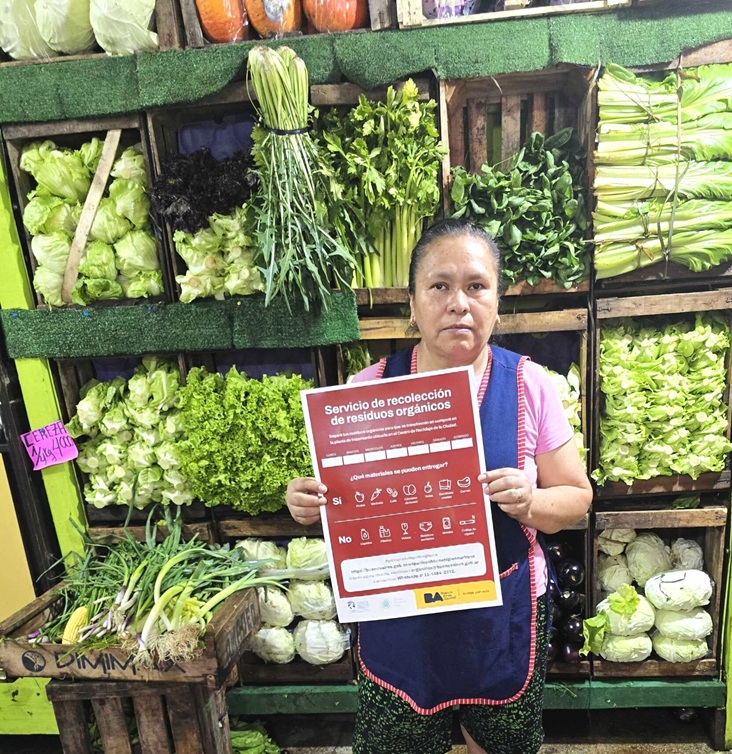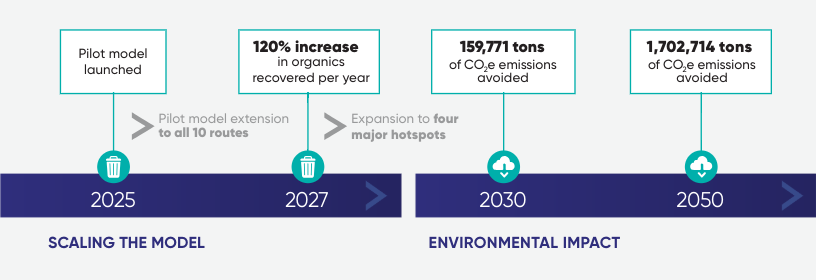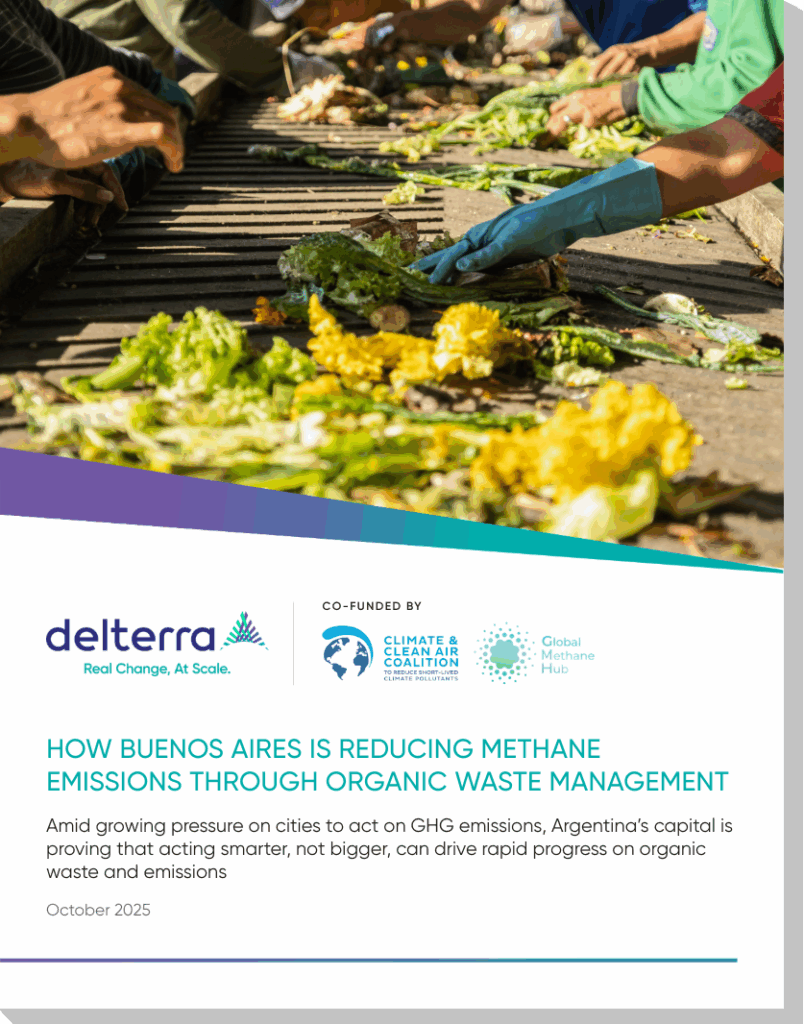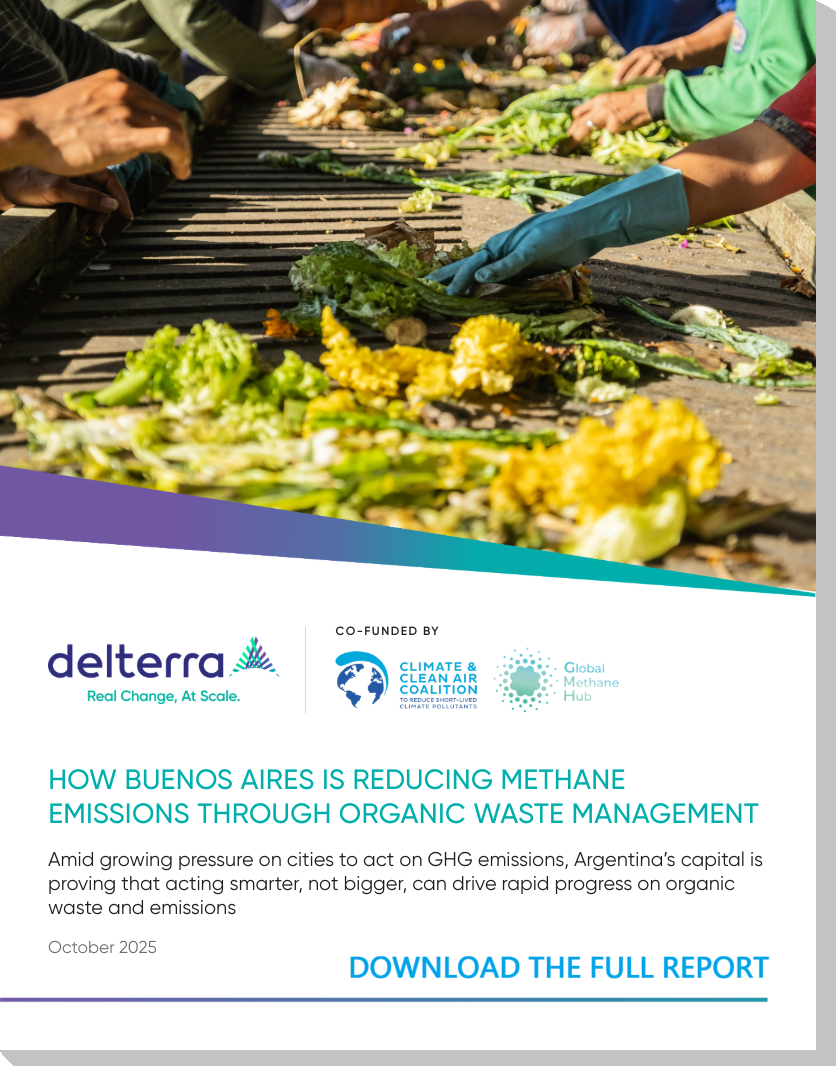Amid growing pressure on cities to act on GHG emissions, Argentina’s capital is proving that acting smarter, not bigger, can drive rapid progress on organic waste and emissions.

In Buenos Aires, where less than 3% of organic waste is currently source separated and recovered and most ends up in the CEAMSE Norte III landfill – one of Latin America’s largest landfills – Delterra, in a project co-funded by the Climate and Clean Air Coalition (CCAC) and the Global Methane Hub (GMH), worked with the city to prove that optimizing existing systems can deliver outsized results.
By redesigning one organic waste collection route serving large food businesses and pairing it with a behavior change campaign and digital tracking tools, the city saw results within months.
Key Results
- Increased the amount of organics recovered by 45%
- Reduced cost per ton for collection by 25%
- Improved sorting quality from 68% to nearly 100% in just 12 weeks
 *Emissions avoided calculated using 2.58 ton CO2e per ton of organic waste using IPCC default values
*Emissions avoided calculated using 2.58 ton CO2e per ton of organic waste using IPCC default values
Scaling Impact in Buenos Aires
Building on this success, Buenos Aires plans to scale the model to 10 routes by 2027, with the potential to recover more than 6,000 tons of organics per year. If expanded through a hotspot strategy, it can prevent an estimated 1.7 million tons of CO₂e emissions by 2050, equivalent to removing about 370,000 cars from the road for one year.
The result is a citywide approach that is both economically sound and environmentally powerful – one that other cities can adapt to achieve climate impact without overextending public budgets.
Learn more about the pilot and potential for scale by downloading the Case Study below.
Access the Report


